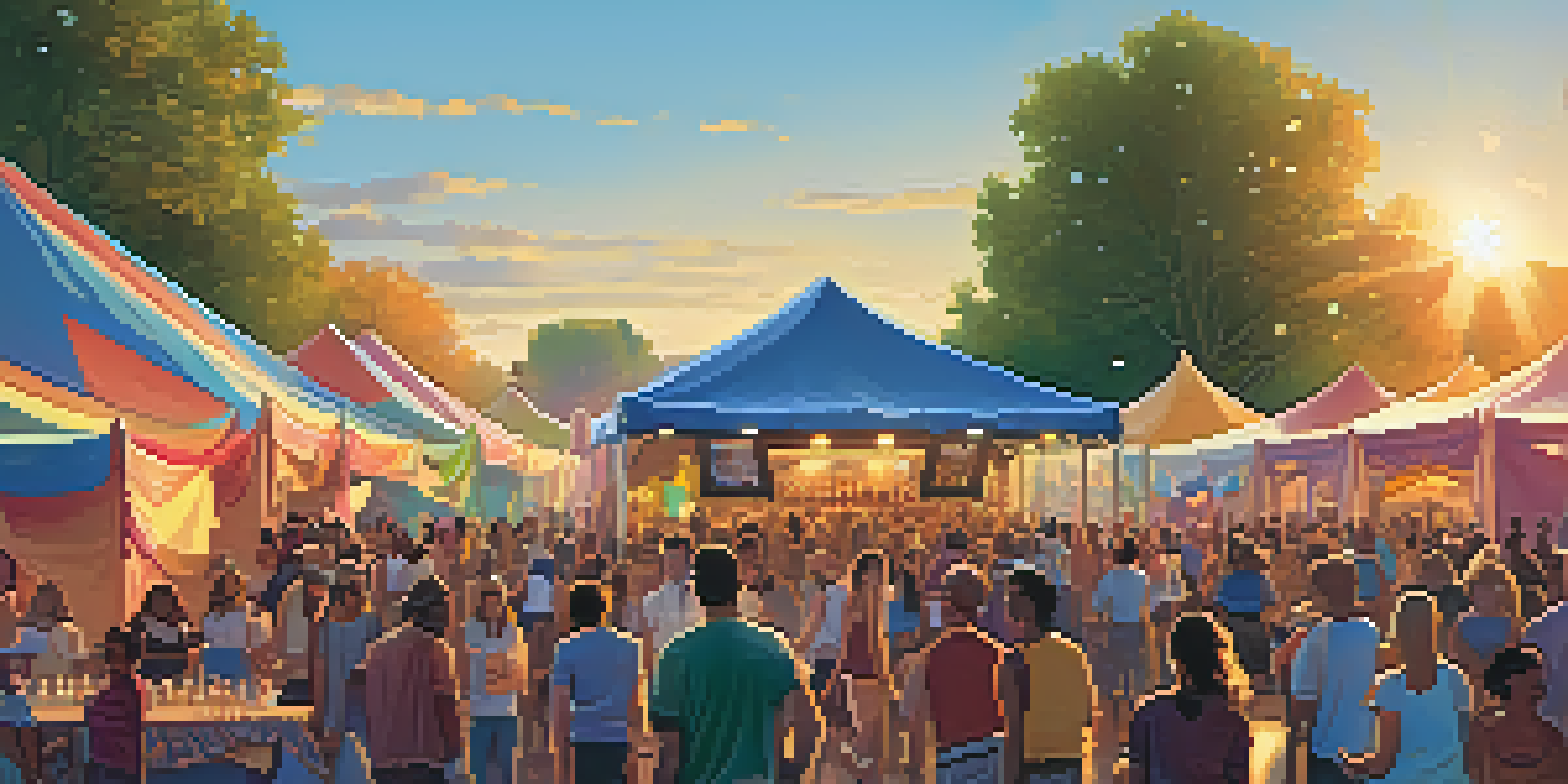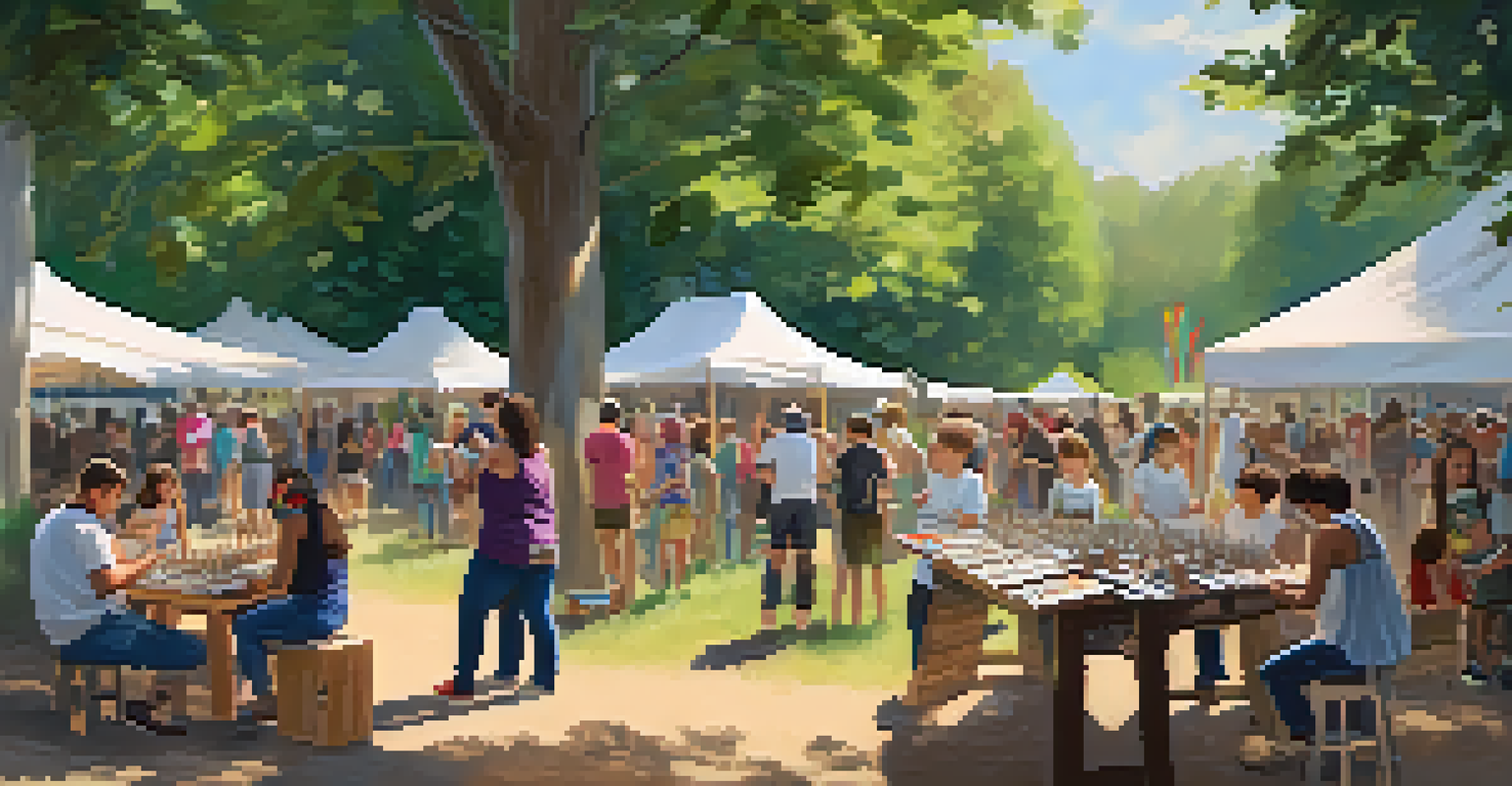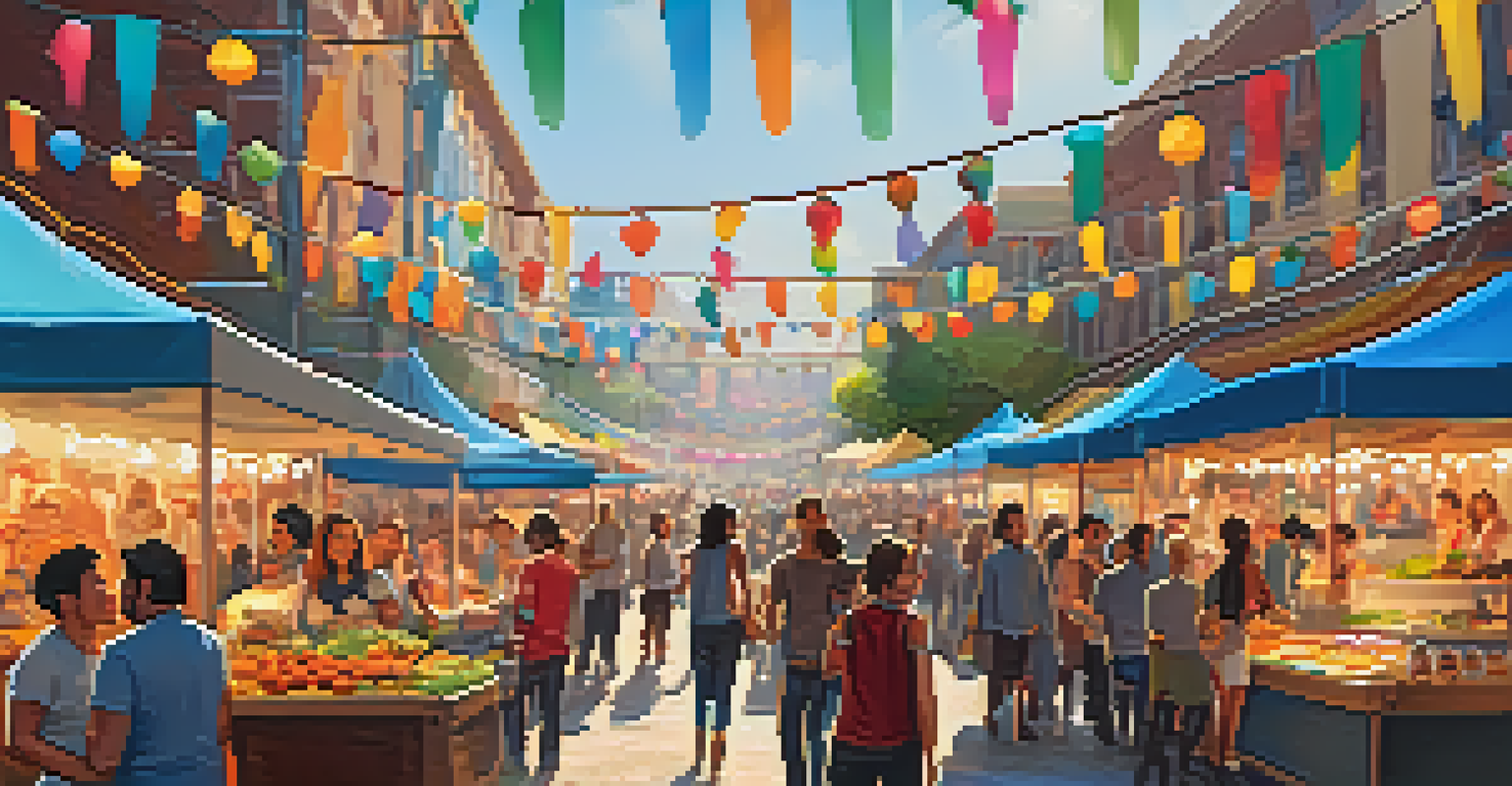Creating Community Connections Through Music Festivals

The Role of Music Festivals in Community Building
Music festivals have long been a cornerstone of community engagement. They bring together individuals from diverse backgrounds, creating a shared experience that fosters unity. When people gather to enjoy music, they often find common ground, which can lead to lasting friendships and collaborations.
Music can change the world because it can change people.
These events serve as a melting pot for creativity and expression, allowing local artists to showcase their talents. This not only supports the arts but also strengthens local economies, as attendees often explore nearby businesses. It’s a win-win situation that enhances community pride and visibility.
Moreover, music festivals can ignite conversations around important social issues. By featuring diverse artists and themes, they create a platform for dialogue, encouraging attendees to reflect on their own communities and the world around them.
Fostering Inclusivity Through Music
One of the most beautiful aspects of music festivals is their ability to foster inclusivity. Music knows no boundaries; it transcends age, race, and cultural differences. Festivals often curate a diverse lineup, celebrating various genres and styles that resonate with different groups.

This inclusivity is vital in creating a welcoming atmosphere where everyone feels valued. For example, many festivals are now prioritizing accessibility, ensuring that all individuals, regardless of their abilities, can participate fully. Such initiatives help to build a stronger, more connected community.
Music Festivals Unite Communities
Music festivals create a shared experience that fosters unity and collaboration among diverse individuals.
Additionally, festivals often include workshops and activities that engage attendees in more than just listening to music. These interactive experiences encourage participation and help individuals connect with one another, enhancing the sense of belonging.
Empowering Local Artists and Musicians
Local artists play a crucial role in the success of music festivals. By providing a platform for these musicians, festivals can help elevate their careers, often leading to new opportunities. This empowerment not only benefits the artists but also enriches the cultural fabric of the community.
The power of music connects people in ways that words alone cannot.
When local talent is showcased, it creates a sense of pride among residents. People love to support their neighbors and celebrate their achievements, reinforcing community bonds. For many, watching a local artist perform on a big stage is a memorable experience that fosters loyalty and connection.
Furthermore, these festivals often include mentorship programs where established artists share their knowledge with newcomers. This exchange of ideas not only nurtures talent but also strengthens the community's creative ecosystem.
Boosting Local Economy Through Festivals
Music festivals can significantly boost the local economy, attracting attendees who spend money on food, lodging, and entertainment. This influx of visitors can lead to a surge in sales for local businesses, providing a much-needed economic boost. It's a vibrant cycle that benefits everyone involved.
Moreover, festivals often employ local vendors, from food trucks to artisans, creating job opportunities and stimulating the economy. This engagement helps to keep money within the community, fostering a sense of collaboration among local businesses.
Local Artists Gain Visibility
By showcasing local talent, music festivals empower artists and enrich the cultural fabric of their communities.
The economic impact of music festivals also extends to tourism. A well-promoted festival can draw visitors from outside the area, potentially leading to repeat visits and an overall increase in tourism revenue.
Creating Lasting Memories and Connections
Attending a music festival is often about creating lasting memories. From shared experiences to spontaneous moments with friends, these events can forge deep connections among attendees. The joy of discovering new music together can lead to friendships that last long after the festival ends.
Many people recount their festival experiences as some of the best times of their lives. Whether it’s dancing with strangers or singing along to a favorite song, these shared moments become cherished memories. They serve as a reminder of the power of music to bring people together.
Additionally, festivals often encourage attendees to engage with their surroundings, fostering a sense of community. Participating in activities, exploring local art, or simply enjoying the atmosphere can deepen one's connection to the community and its culture.
Encouraging Volunteerism and Community Involvement
Music festivals often rely on volunteers to help bring the event to life. This reliance fosters a spirit of community involvement, as individuals come together to contribute their time and skills. Volunteering at a festival can be a transformative experience, fostering a sense of purpose and belonging.
Involvement in these events often leads to greater civic engagement. Volunteers may become more aware of community issues and inspired to take action beyond the festival. This ripple effect can result in a more active and informed citizenry.
Economic Boost for Local Businesses
Festivals attract visitors who spend money on local goods and services, significantly boosting the local economy.
Furthermore, many festivals partner with local charities, encouraging attendees to give back. This collaboration not only supports important causes but also strengthens community ties, creating a positive feedback loop of support and engagement.
The Future of Festivals and Community Connections
As we look to the future, music festivals will continue to play a vital role in building community connections. With advancements in technology, festivals are evolving to include virtual experiences, expanding their reach and inclusivity. This evolution ensures that more people can participate, regardless of location.
Sustainability is also becoming a focal point for many festivals. By promoting eco-friendly practices, they encourage attendees to think about their environmental impact, fostering a sense of responsibility towards the community and planet. This forward-thinking approach can help create a more conscious and connected community.

Ultimately, the future of music festivals lies in their ability to adapt while staying true to their roots. By prioritizing community connection, inclusivity, and sustainability, festivals can continue to be a powerful force for good.